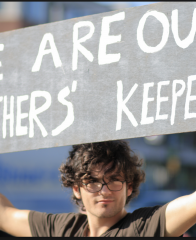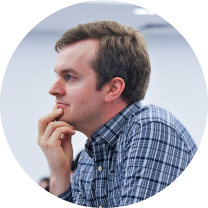 / Mental Health—University of Nottingham
Subscribe
/ Mental Health—University of Nottingham
Subscribe

My internship was under the leadership of Professor Martin Orrell, who is the Director of the Institute of Mental Health at the University of Nottingham and my direct supervisor, Briony Harden. Specifically, I was working for the Centre for Mental Health and Human Rights, a collaborating center with the World Health Organization (WHO). The focus of the center, much like its name, is to collaborate with the WHO on projects regarding mental health, disability, and human rights. I found this opportunity after contacting the individuals within the WHO’s Department for Mental Health and Human Rights in Geneva, Switzerland.
As an intern, I was assigned to help with a project regarding Dementia and Human Rights. I worked towards the development of a WHO-sponsored best practice guidance document of services around the world that work with dementia patients and demonstrate good human rights and person-centered care. To clarify, the term services in this context and report refers to any organization or institution that is responsible for providing any dementia care or support. One of my main tasks was to reach out to these care and support services through email with a letter describing the Centre for Mental Health and Human Rights and our objectives. This email also included a link to a survey that asks questions about the services they provide for dementia-specific care, what their crisis management protocols are, and how their services promote and protect the rights of people with dementia and their caregivers. Those services that responded to the survey were considered for inclusion in the good practice document. The incredibly large number of emails that I sent required me to stay organized and remain in contact with my supervisor very regularly about responses and any questions that arose. Additionally, this task taught me patience. Most organizations that I was responsible for contacting were not located in English-speaking countries. This often resulted in communication difficulties that required the use of translation services.
I also attended a conference at the Institute of Mental Health in June where researchers shared their fascinating work on various aspects of mental health and its influence on communities and populations. Listening to their presentations made it clear that research and public health are deeply interconnected, with public health relying on innovation and research. This internship has solidified my future career and academic plans. I aim to gain further experience in the field of public health before pursuing a Master's in Public Health.
My main goal going into my internship was to learn as much as I could about this intersection of mental health and human rights, which is such a niche field. It combines the two things that I am particularly passionate about, and I hoped to understand what sort of work is done on a day to day basis for a concept that otherwise feels quite abstract. Through my daily work and interactions with my team, I gained valuable insights and a clearer perspective on the practical aspects of this field and the role of institutions such as the WHO in working towards improving human rights conditions of individuals with conditions such as dementia. It was extremely rewarding to participate in this project which will lead to the publication of a WHO report that will help illustrate global examples of services related to dementia and human rights, in which I will be listed as a contributor. I am sure that this WHO report when published will influence the rise of increased such programs around the world and help millions of individuals.






